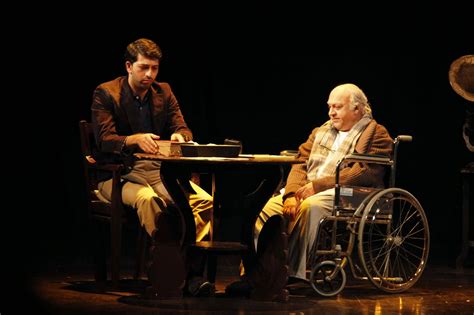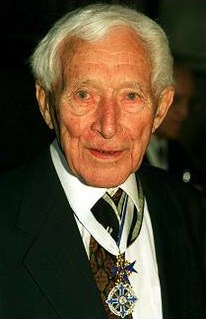A Quote by C. S. Lewis
we follow One who stood and wept at the grave of Lazarus-not surely, because He was grieved that Mary and Martha wept, and sorrowed for their lack of faith (though some thus interpret) but because death, the punishment of sin, is even more horrible in his eyes than in ours.
Related Quotes
Last night I wept. I wept because the process by which I have become woman was painful. I wept because I was no longer a child with a child's blind faith. I wept because my eyes were opened to reality....I wept because I could not believe anymore and I love to believe. I can still love passionately without believing. That means I love humanly. I wept because I have lost my pain and I am not yet accustomed to its absence.
In ancient times before the divine sojourn of the Savior took place, even to the saints death was terrible; all wept for the dead as though they perished. But now that the Savior has raised his body, death is no longer terrible; for all who believe in Christ trample on it as it were nothing and choose rather to die than deny their faith in Christ. And that devil that once maliciously exulted in death, now that its pains were loosed, remained the only one truly dead.
I wept in my dreams. I dreamed you lay in the grave; I awoke, and the tears still poured down my cheeks. I wept in my dreams, I dreamed you had left me; I awoke and I went on weeping long and bitterly. I wept in my dreams, I dreamed you were still kind to me; I awoke, and still the flow of my tears streams on.
I watched my life as if it were happening to someone else. My son died. And I was hurt, but I watched my hurt, and even relished it, a little, for now I could write a real death, a true loss. My heart was broken by my dark lady, and I wept, in my room, alone; but while I wept, somewhere inside I smiled.
Should I, after tea and cakes and ices, Have the strength to force the moment to its crisis? But though I have wept and fasted, wept and prayed, Though I have seen my head (grown slightly bald) brought in upon a platter, I am no prophet--and here's no great matter; I have seen the moment of my greatness flicker, I have seen the eternal Footman hold my coat, and snicker, And in short, I was afraid.
I wept like a child. It was not because I was overcome at having survived my ordeal, though I was. Nor was it the presence of my brothers and sisters, though that too was very moving. I was weeping because ....fill in the blank with whatever/whoever helped you survive... had left me so unceremoniously.
Flailing and thrashing, Buttercup wept and tossed and paced and wept some more, and there have been three great cases of jealousy since David of Galilee was first afflicted with the emotion when he could no longer stand the fact that his neighbor Saul's cactus outshone his own. (Originally, jealousy pertained solely to plants, other people's cactus or ginkgoes, or, later, when there was grass, grass, which is why, even to this day, we say that someone is green with jealousy.) Buttercup's case rated a close fourth on the all-time list. It was a very long and very green night.
The religious man, the mystic, tries to explore the mystery of death. In exploring the mystery of death, he inevitably comes to know what life is, what love is. Those are not his goals. His goal is to penetrate death, because there seems to be nothing more mysterious than death. Love has some mystery because of death, and life also has some mystery because of death.
Paul never glamorized the gospel! It is not success, but sacrifice! It's not a glamous gospel ,but a bloody gospel, a gory gospel, and a sacrificial gospel! 5 minutes inside eternity and we will wish that we had sacrificed more!!! Wept more, bled more, grieved more, loved more, prayed more, given more!!!
The (capital punishment) controversy passes the anarch by. For him, the linking of death and punishment is absurd. In this respect, he is closer to the wrongdoer than to the judge, for the high-ranking culprit who is condemned to death is not prepared to acknowledge his sentence as atonement; rather, he sees his guilt in his own inadequacy. Thus, he recognizes himself not as a moral but as a tragic person.





































